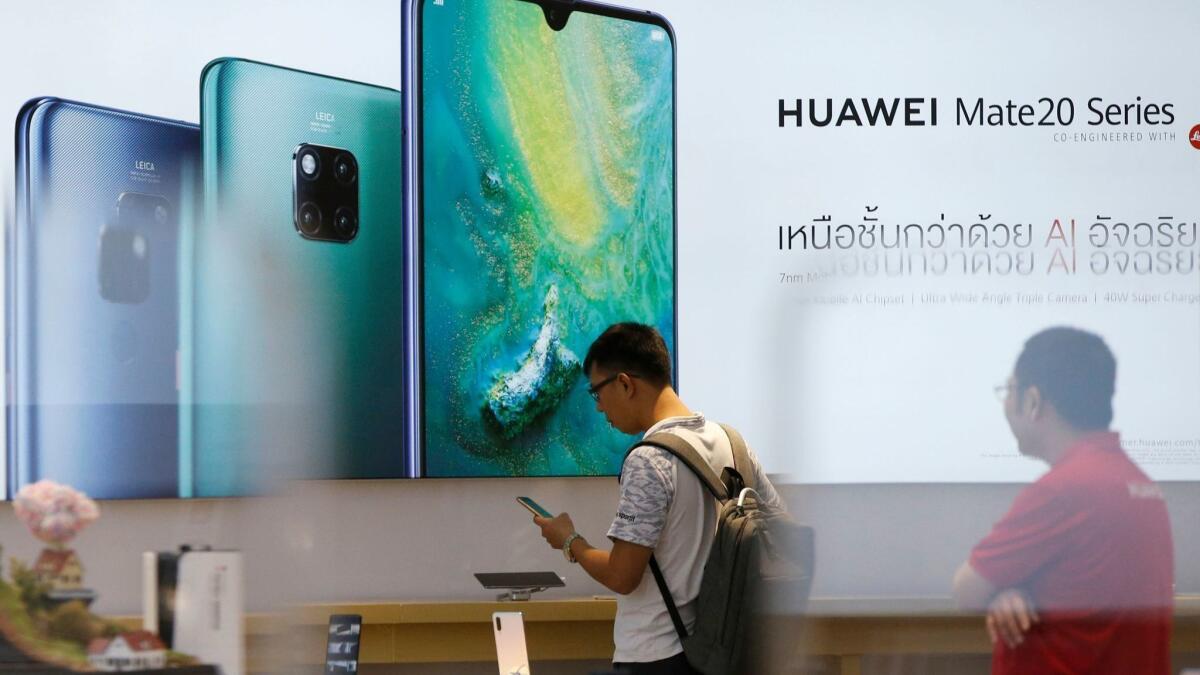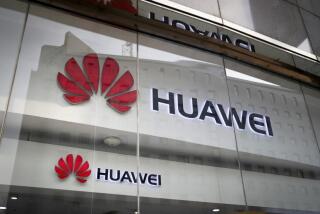Huawei gets short reprieve but seeks alternatives to Google’s Android after U.S. ban

Huawei Technologies Co. said Tuesday that it’s working on its own operating system for its mobile handsets and will consider rivals to Google’s Android after the U.S. blacklisted the Chinese company, threatening its partnerships with chip, component and software suppliers.
The Chinese telecom equipment giant said it was in talks with Google about how to proceed after the Alphabet Inc. subsidiary confirmed that it would cut access to some of Huawei’s operating system features for the company’s new devices in response to the announcement of the trade restrictions from the Trump administration.
Meanwhile, several media outlets reported that Google said it plans to continue working with Huawei under a temporary reprieve from the restrictions granted by the U.S. Commerce Department that will let Google provide key Android security updates during the 90-day time frame. The reprieve would let Google send software updates to Huawei phones using the Android operating system until Aug. 19, but future Huawei phones will still lack Google’s apps.
If and when Google’s system should no longer be available, “then the alternative option will naturally come out — either from Huawei or someone else,” Abraham Liu, Huawei’s representative to European Union institutions, said at an event in Brussels on Tuesday.
Liu said Huawei had been working on its own operating system but that he didn’t have the details about when it could be ready. Huawei would do everything in its power to mitigate the impact of the U.S. decisions, Liu said.
The Trump administration late last week signed an order that could restrict Huawei — which it says is obliged to support Beijing spying — from selling equipment in the U.S. Washington also put Huawei on a blacklist, threatening its supply of American components from semiconductors to the Google apps that run on its smartphones.
“Obviously there is a challenge here,” Liu said. “I hope that very soon that the leaders from my consumer business group will be able to share with you our new strategy based on the new situation.”
Android continues to power Huawei’s smartphones globally, and the Chinese company depends on Google’s most popular apps to win mobile phone shoppers. Huawei phones outside China have used a version of Android that comes with a package of Google services, including search, Maps, YouTube and — crucially — the Play store for downloading a range of apps.
There are few major alternatives to Android, the dominant operating system for smartphones. Blackberry shut down its OS in 2016, Microsoft Corp. has all but ended support for its Windows Phone system, and Samsung Electronics Co.’s Tizen is used for the company’s smartwatches.
Bloomberg reported late Monday that Huawei has been pitching app makers and European carriers in a bid to develop and spread its own mobile app store in Europe. The company’s proprietary app store would have been an important feature of Huawei’s own operating system, which it said last year it had started to build. That faces uncertainty now that U.S. companies may be restricted from contributing to it.
Huawei is said to have stockpiled enough chips and other vital components to keep its business running for at least three months. It’s been preparing for such an eventuality since at least the middle of 2018, hoarding components while designing its own chips, people familiar with the matter said.
Liu said Tuesday that while there might be “some minor impact of some components or parts, I can assure that the leading, advanced solutions has been safeguarded by our own backup plan.”





